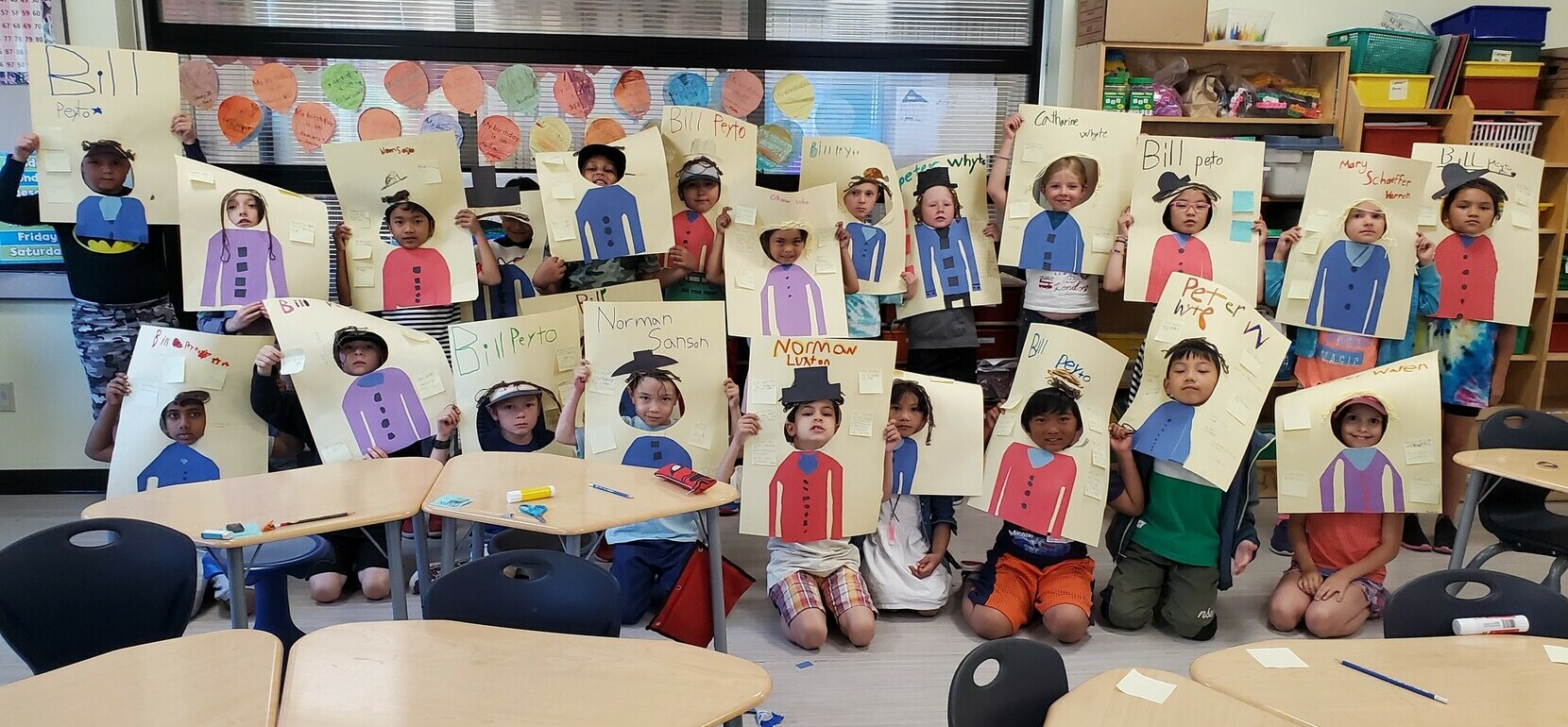Elementary Years
Your child’s elementary school years, Kindergarten to 6, are an important time of growth and learning. At Canadian Rockies Public Schools (CRPS), our programming is designed to help build the foundational literacy and numeracy skills needed to support their learning in middle years, high school years, and beyond. Here, students are empowered to unlock their full potential and discover their passions in and out of the classroom.
Our extensive array of academic programs is based on outcomes in Alberta’s K to 12 curriculum and programs of study, with emphasizes on subject integration, allowing students to explore topics in a holistic manner rather than in isolated subject silos. This approach fosters connections between different subjects and promotes a deeper understanding of the material.
During their elementary years, students are encouraged to ask questions, explore topics of interest, and conduct investigations to find answers, helping to build students' critical thinking, problem-solving, and research skills. Promoting inclusive practices, our teachers ensure that all students, including those with diverse learning needs, are provided with appropriate support and opportunities to succeed.
Surrounded by awe-inspiring natural resources, students are offered an extensive array of extracurricular pursuits, including remarkable opportunities for outdoor education and an intimate connection with nature.
Whether it’s learning how to read, speak French, or ski with our outdoor learning centre, there are countless ways for elementary students to make the most of their experience.
Unique Programming
Nature-Based Immersion
"Education is not the filling of a pail, but the lighting of a fire." ~ William Butler Yeats
Guided by the principles of Waldorf education, Canadian Rockies Public Schools' K to Grade 6 nature based immersion program, fondly known as Alpenglow School, is designed to match the natural stages of human development, allowing children to build a sense of wonder and thirst for knowledge. House out of Canmore Collegiate High School, the school has a structured and balanced curriculum, which is designed to educate “the whole child” nurturing their heart, head, and hands.
Through a multi-disciplinary approach focused on experiential learning, outdoor settings, and artistic expression, Alpenglow's learning experiences ensure students truly know and understand a concept as they have experienced it in many ways - physically, emotionally, and intellectually. The school is dedicated to developing students’ capacity for learning and processing, de-emphasizing testing and exams to measure the success of the students. Daily class observations, conversations with the children and parents, and reflection of the students’ academic, emotional and social development are used to assess the students’ growth and success.
French Immersion
Parents interested in accessing CRPS’ French Immersion program may choose to enrol their child in the program either at kindergarten or Grade 1 at Elizabeth Rummel School in Canmore, which offers full-day FI or half-day FI program. Students continuing with FI in during their middle years will attend Lawrence Grasse Middle School.
CRPS' FI program follows the Alberta Program of Studies, where French is the primary language of instruction. During their introductory years, students will spend 100 percent of the day learning in French and focus on learning commonly used words and phrases, such as “Thank you” or “May I be excused?” Once students begin to achieve listening comprehension and the ability to respond in French, they are introduced to the printed word. By the end of Grade 1, students usually can carry on simple conversations in French. By the end of Grade 3, FI students are expected to be reading, writing, and conversing in French.
During their upper elementary years, students continue to hone their French oral and written skills through hands-on activities, co-operative learning experiences, and cultural celebrations. Approximately 70 percent of the day is spent learning in French, with the remaining instruction provided in English. Beginning in Grade 3, English Language Arts is introduced to ensure that by the time students reach Grade 6, their proficiency in English parallels or exceeds their English-speaking peers. It is expected that students continuing their immersion in Grade 7 will have attained both English and French listening, oral comprehension, and literacy skills that will ensure they succeed in their secondary level studies.
Outdoor Experiential Learning & Outdoor Pursuits
Often coordinated with the division's Outdoor Learning Centre, elementary students engage in a wide range of curriculum-based outdoor learning activities, such as walking trips, Indigenous land-based learning, and full-day sessions at the centre where they learn navigation and tracking skills, conduct pond and forest studies, and gain a historical perspective of outdoor pursuits. A major focus woven into each learning experience is safety and ensuring student preparedness for the weather. Through the generous support of the Wim and Nancy Pauw Foundation, elementary students also get to participate in swimming, hiking, shelter building, snowshoeing, voyageur canoeing, and downhill skiing.








